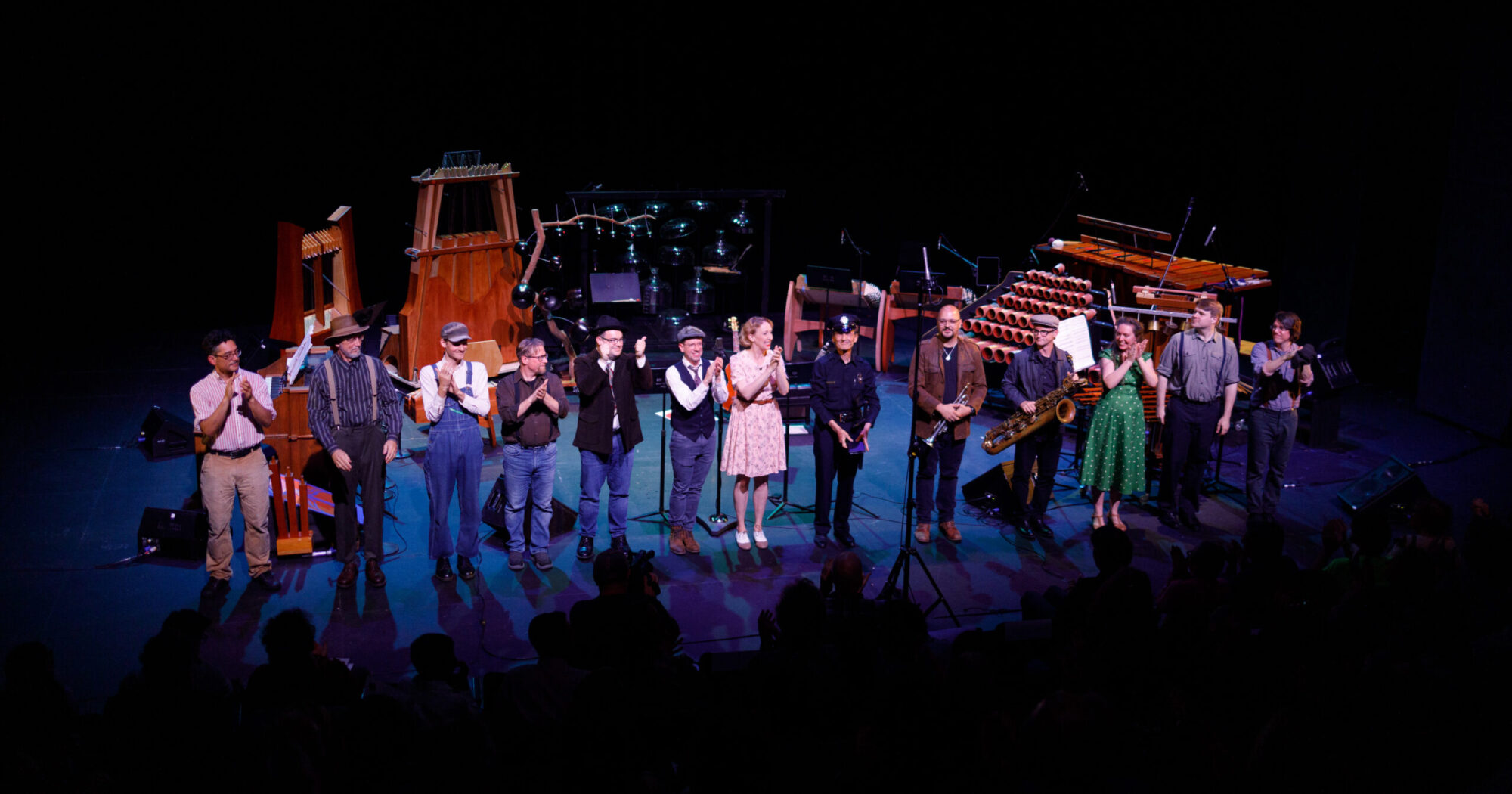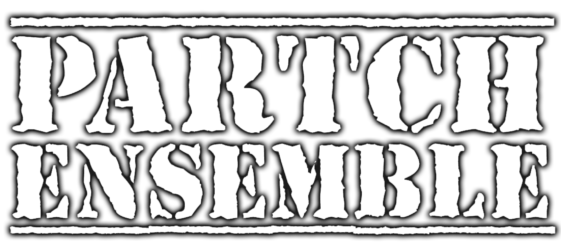-
The Letter — A depression message from a hobo friend (1943/55)
Notes
PARTCH Ensemble performing Harry Partch’s San Francisco—A setting of the cries of Two Newsboys on a Foggy Night in the Twenties at REDCAT on June 16-17, 2023.
“A collection of musical compositions based on the spoken and written words of hobos and other characters—the result of my wanderings in the Western part of the United States from 1935 to 1941.”
~ Harry Partch on The Wayward
Program note by John Schneider:
The text for The Letter comes from the composer’s long-lost hobo journal Bitter Music (1935-36) that he initially set to music in 1943 under the title “Letter From Hobo Pablo,” a friend whom he met at a Federal Shelter in Stockton. The 24-year old Pablo was, “… the one sensitive person I have met and the only one I can bear to talk to,” so when they are told that they must go to a work camp “…to work 6 hours a day, 5 days a week, tobacco & work clothes furnished, and $4 a month besides,” they both chose Harrington Ranch. Pablo only lasted three weeks, being expelled for drinking, but Partch was clearly pleased when he recounts the letter he received three months later, which he introduces as “Echoes from Mandolin-Face of the tooth-fretted Lips.
-
U.S. Highball — A musical account of a transcontinental hobo trip (1943/55)
Notes
Bass & Diamond Marimbas ~ Boo ~ BloBoy ~ Castor & Pollux Canons ~ Chromelodeon ~ Kithara II ~ Surrogate Kithara ~ Spoils of War
“A collection of musical compositions based on the spoken and written words of hobos and other characters—the result of my wanderings in the Western part of the United States from 1935 to 1941.”
~ Harry Partch on The Wayward
Program note by John Schneider:
In 1957, Partch described this final version of U.S. Highball as, “…the most creative piece of music I ever wrote, and in the sense that it is less influenced by the forms and attitudes that I had grown up with as a child and experienced later in adult life, there can be no doubt of it.” The initial version was sketched out with guitar & solo voice, followed six months later by an expanded version for voice, guitar, kithara & chromelodeon. But he soon realized that the work really needed percussion instruments, and nine years later, he created the work you hear tonight. It describes his 1941 two-week freight-hopping, hitch-hiking & pot walloping journey from Carmel, California to Chicago in search of a new life and recognition of his music:
“It was the second day out of San Francisco that I began jotting down words in this notebook: fragments of conversations, remarks, writings on the sides of boxcars, signs in havens for derelicts, hitchhiker’s inscriptions, names of stations, thoughts…These fragments ARE the text of U.S. Highball… The work falls naturally into three parts: first, a long and jerky passage by drags to Little America, Wyoming: second, a slow dish-washing movement at Little America; third, a rhythmic allegro by highway to Chicago. The one word—Chicago—is the end of the text. Instrumentally, what follows implies a tremendous letdown from the obstinately compulsive exhilaration of getting to Chicago. It implies bewilderment, and that essentially dominant question in the life of the wanderer — what next?”
But the story doesn’t end there: following the 1958 release of the recording on Partch’s own Gate 5 label, he and filmmaker Madeline Tourtelot shot a studio performance of the work, and a decade later interspersed those black & white scenes with color footage of trains, roads, scenery traversed, and even abstract art. The 24-minute art house film still makes quite an impression, and is easily viewable online.
Partch Instruments:
Bass Marimba, Bloboy, Boo, Castor and Pollux, Chromelodeon, Diamond Marimba, Harmonic Canon, Kithara II, Spoils of War, Surrogate Kithara -
Ulysses at the Edge of the World (1955/62)
Notes
PARTCH Ensemble performing Harry Partch’s Ulysses at the Edge of the World — A Minor Adventure in Rhythm at REDCAT on June 16-17, 2023.
“A collection of musical compositions based on the spoken and written words of hobos and other characters—the result of my wanderings in the Western part of the United States from 1935 to 1941.”
~ Harry Partch on The Wayward
Program note by John Schneider:
Ulysses at the Edge of the World was written for jazz great Chet Baker, to be accompanied by double bass and BooBams, bamboo tubes with skin heads that inspired Partch’s own 64-note tongue drum version he called “Boo.” Sadly, Baker was too busy to premiere the piece, and a few years later Partch added a baritone sax part as he had become a fan of Baker’s duets with Gerry Mulligan. The piece was eventually recorded by another pair of players, and in the liner notes to the LP New Music for Trumpet, the composer relates:
At the time I was writing it the feeling of my hobo years was strong. As a wanderer myself (like Ulysses) I had often been asked the question, “Have you ever been arrested before?” and it struck me as very humorous to be able to ask another wanderer the same question.
However, the duet version did not include the previous invitation, “Trumpet can improvise here if it wants, preferably on this six-tone scale…using the same 7/8 accompaniment.” So tonight, we couldn’t resist honoring Partch’s initial intent since both of our soloists are not only recognized stalwarts of the new music scene, but also major contributors to this city’s vibrant jazz scene.

